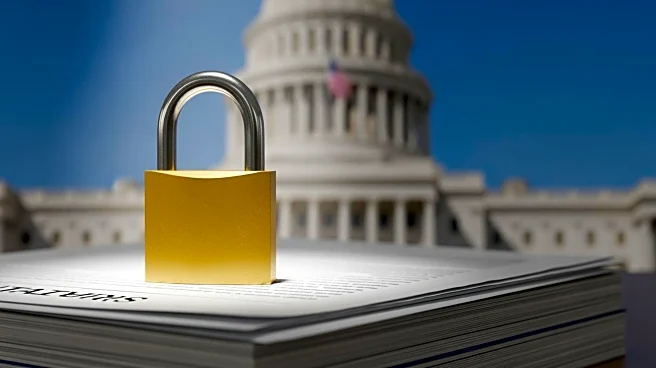What's Happening?
The ongoing government shutdown, now in its 34th day, is primarily stalled due to disagreements over health insurance premiums. The central issue revolves around tax credits for Affordable Care Act (ACA)
health insurance premiums. Democrats are pushing for Republicans to extend these tax credits, which are crucial for making health insurance more affordable for many Americans. Without these credits, the cost of health insurance is expected to rise significantly, potentially reaching thousands of dollars per month. This impasse has become a major sticking point in negotiations, with both parties unable to reach a consensus on how to proceed.
Why It's Important?
The dispute over health insurance premiums is significant as it directly impacts millions of Americans who rely on the Affordable Care Act for their health coverage. The potential increase in insurance costs could lead to a substantial financial burden for individuals and families, particularly those with lower incomes. This issue also highlights the broader political divide over healthcare policy in the United States, with Democrats advocating for more accessible healthcare options and Republicans often seeking to reduce government involvement. The outcome of this standoff could have lasting implications for the healthcare system and the financial well-being of many citizens.
What's Next?
As negotiations continue, both parties are under pressure to find a resolution that will end the government shutdown and address the concerns over health insurance premiums. If an agreement is not reached soon, the financial strain on those affected by the potential premium increases could intensify. Additionally, the prolonged shutdown may lead to further disruptions in government services and operations. Stakeholders, including healthcare providers and advocacy groups, are likely to continue lobbying for a solution that ensures affordable healthcare access.









